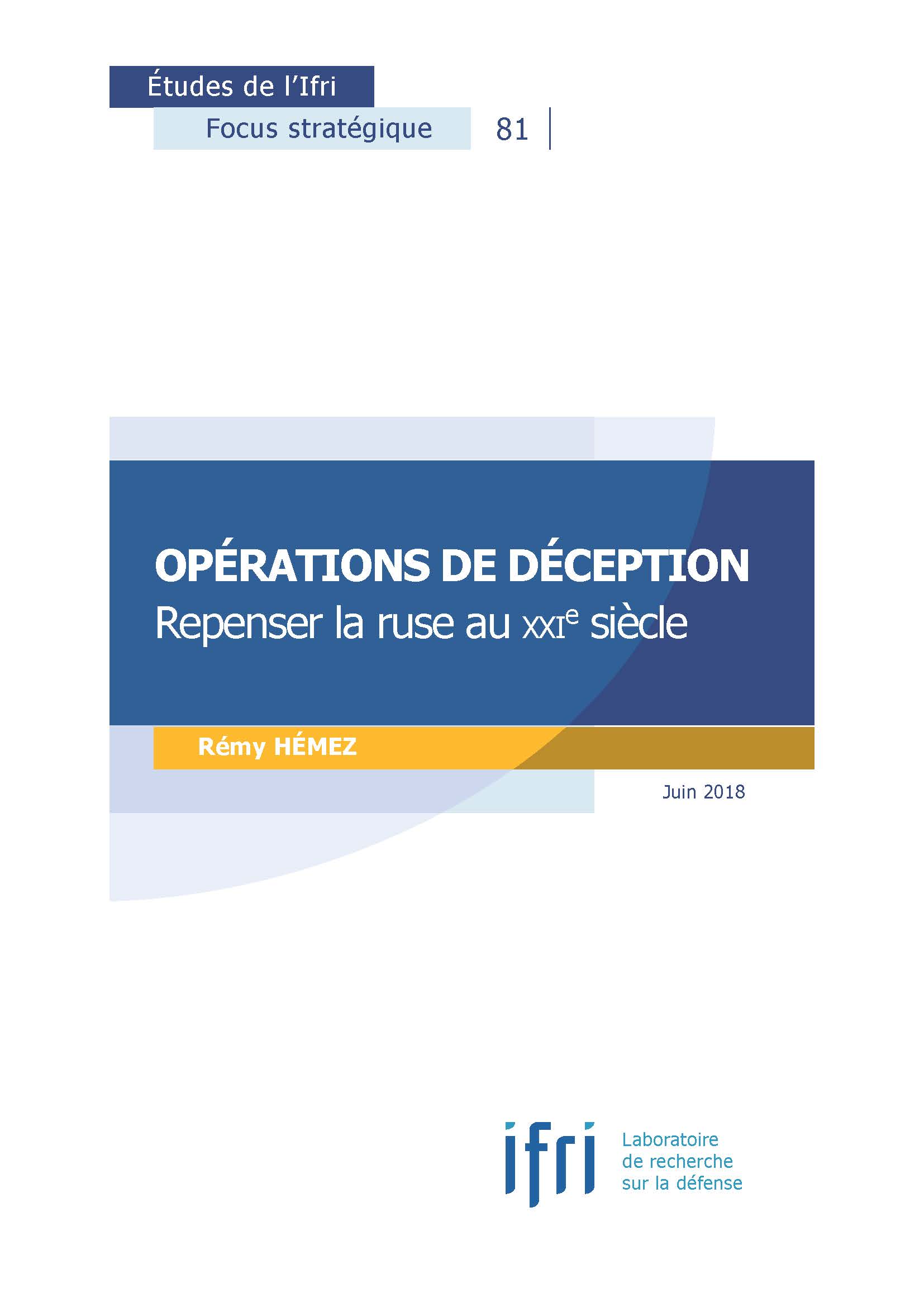Opérations de déception. Repenser la ruse au XXIe siècle

Deception operations, which refer to manoeuver, economy of armed forces and surprise, need to be reintegrated at the center of strategy to respond efficiently to modern threats.
Often associated with cunning and stratagems, deception operations are as old as warfare while frequently neglected, whether at the strategic, tactical, or operational levels. Its main methods are concealment, simulation and intoxication, all of which help to deceive the enemy and make him believe in an illusion aimed at causing his loss. Despite an effectiveness proven many times in history, this practice is not without its dilemmas-cultural and ethical, but also in terms of resources allocation. As modern armed forces witness the constant progress of information networks, digitalization and artificial intelligence, new technologies seem to provide a fertile ground for a renewal of deception operations. If well used, these would help mitigate the end of the operational comfort predicted to Western forces and avoid the advent of a new tactical blockage.
This content is available in French: Opérations de déception. Repenser la ruse au XXIe siècle.
Related centers and programs
Discover our other research centers and programsFind out more
Discover all our analysesThe Franco-German Brigade and the Revival of European Defense
One thing has been clear since Donald Trump's return to the White House: the very existence of the European unification project is threatened. Unless it develops a sovereign defense policy to counter the war in Ukraine and the weakening of American security guarantees, the European Union will continue to see its internal cohesion and external attractiveness wane.
Taking the Pulse: Can Europeans Build Their Independent Extended Nuclear Deterrent?
Confronted with a U.S. disengagement and the Russian threat, Europeans are reconsidering their stance on nuclear deterrence. Given the capabilities of the French and British arsenals, can Europe develop an independent nuclear deterrent?

RAMSES 2024. A World to Be Remade
For its 42nd edition, RAMSES 2024 identifies three major challenges for 2024.
A Transatlantic Defense Industrial Base? Two Contrasting Views
The evolving landscape of global defense cooperation has brought the transatlantic relationship between the United States (US) and Europe into sharp focus. As geopolitical tensions rise and the threat environment becomes more complex, the question of how Europe can best ensure its security while navigating its relationship with the United States has become paramount. This double feature report offers two contrasting views on the dynamics of US-Europe defense industrial relations, highlighting the challenges and opportunities that lie ahead for both parties.








